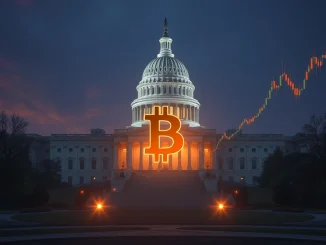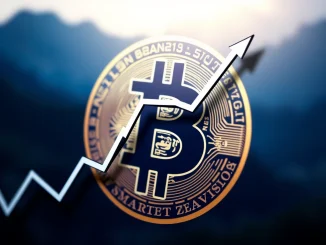
Imagine a world where countries hold Bitcoin alongside gold and foreign currencies. That future might be closer than you think, especially with news emerging from Asia. A significant development regarding Taiwan Bitcoin Reserves is currently making waves, potentially signaling a shift in how nations view digital assets.
Why Consider Bitcoin for National Reserves?
The core of this fascinating discussion comes from Taiwanese lawmaker Ko Ju-Chun. He has formally called on the government to explore adding Bitcoin (BTC) to its national reserve assets. This isn’t just a casual suggestion; it’s a proposal rooted in strategic financial thinking. His argument centers on the potential benefits of incorporating Bitcoin National Reserves into Taiwan’s existing financial framework.
So, why is this being considered? Ko Ju-Chun highlights the hedging capabilities of Bitcoin. In a world facing economic uncertainty, geopolitical shifts, and inflationary pressures, traditional reserve assets like fiat currencies can be vulnerable. Bitcoin, with its decentralized nature and limited supply, is increasingly seen by some as a potential hedge against these risks. Adding BTC could potentially:
- Boost the resilience of the financial system.
- Increase the flexibility of reserve management.
- Offer diversification away from traditional assets.
This perspective aligns with a growing global conversation about the role of digital assets in national treasuries.
Exploring the Concept of Bitcoin Hedging
The lawmaker’s emphasis on Bitcoin Hedging is a key point. What exactly does this mean in the context of national reserves? A hedge is an investment made with the intention of reducing the risk of adverse price movements in an asset. For a nation’s reserves, this means protecting the value of those reserves against potential losses from inflation, currency devaluation, or market instability.
Historically, gold has served this purpose, often seen as a store of value that retains purchasing power during economic turmoil. Foreign currencies are held for international trade and financial stability. The argument for Bitcoin as a hedge suggests it can offer similar protection, perhaps even uncorrelated with traditional markets in certain scenarios. However, it’s crucial to acknowledge that Bitcoin’s volatility also presents risks not typically associated with gold or major fiat currencies.
What Does This Mean for Taiwan Cryptocurrency?
This proposal, while not yet government policy, is a significant indicator for the future of Taiwan Cryptocurrency adoption and regulation. A move to hold Bitcoin at a national level could signal a more open and potentially favorable stance towards digital assets within the country. It could pave the way for:
- Increased institutional interest and adoption.
- More clarity and potentially progressive regulation for the crypto industry.
- Enhanced public awareness and understanding of cryptocurrencies.
It positions Taiwan as a nation actively considering innovative approaches to financial management in the digital age. While the proposal is from a single lawmaker, it reflects a broader global trend of nations exploring the potential of digital assets.
Is This a New Trend in Cryptocurrency Policy?
While Taiwan’s exploration of adding Bitcoin to reserves is notable, it’s part of an evolving global discussion around Cryptocurrency Policy at the state level. El Salvador famously became the first country to adopt Bitcoin as legal tender and holds BTC on its balance sheet. Other nations and even cities are exploring or implementing strategies related to Bitcoin and other digital assets, from mining operations to integrating blockchain technology into public services.
This Taiwanese proposal adds another layer to this global narrative, focusing specifically on the reserve asset function rather than just legal tender. It highlights that governments are looking beyond just regulating crypto; some are considering its potential strategic uses within their own financial systems.
Looking Ahead: Challenges and Opportunities
While the potential benefits of adding Bitcoin to national reserves are compelling to proponents like Ko Ju-Chun, significant challenges remain. These include managing Bitcoin’s price volatility, establishing secure storage solutions (custody), navigating the evolving regulatory landscape, and gaining broader political and public support for such a move. The technical and logistical aspects of integrating a volatile digital asset into traditional reserve management frameworks are complex.
However, the opportunity lies in potentially enhancing the nation’s financial security and demonstrating a forward-thinking approach to global finance. The conversation in Taiwan is a crucial step in understanding how developed economies might integrate digital assets into their core financial strategies.
Conclusion
The call by Taiwanese lawmaker Ko Ju-Chun to include Bitcoin in the nation’s reserves alongside gold and foreign currencies is a powerful statement about the increasing legitimacy and perceived utility of digital assets. By emphasizing Bitcoin’s potential for hedging and boosting financial resilience, the proposal opens up a vital discussion about the future of national reserve management and the role of Taiwan Bitcoin Reserves in that future. While implementation faces hurdles, the very consideration of such a move by a prominent figure in Taiwan underscores the growing impact of cryptocurrency on traditional finance and global economic strategy.



